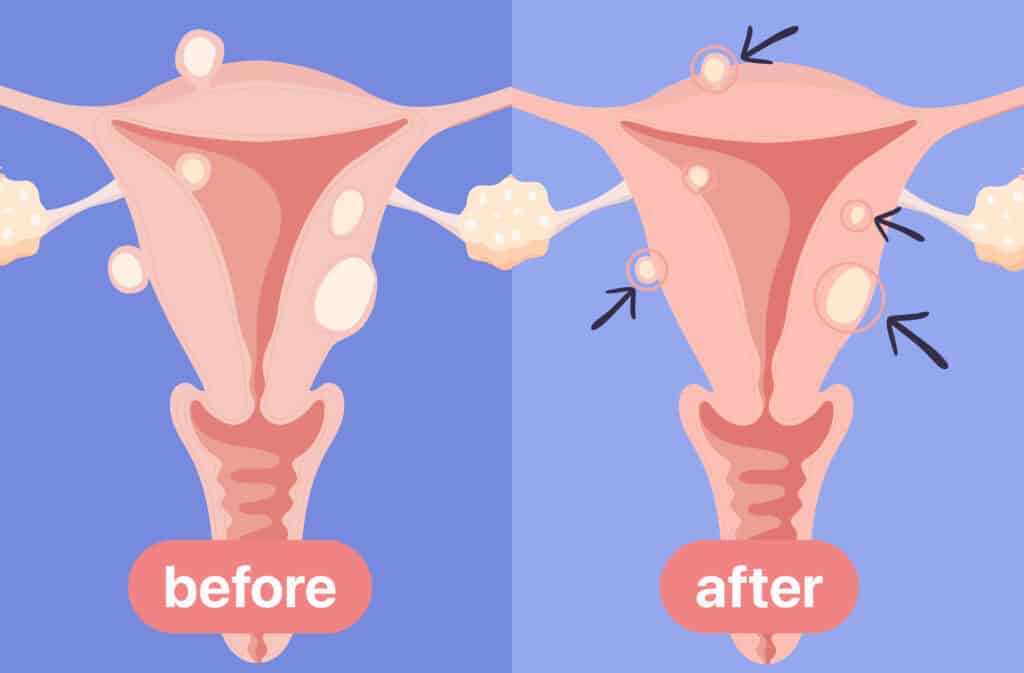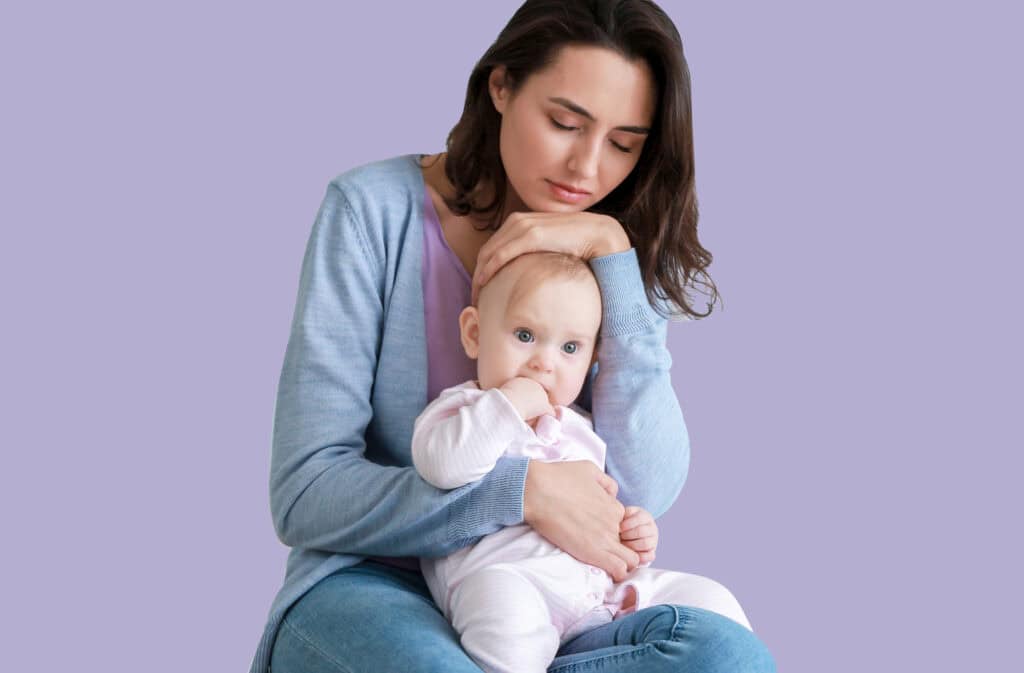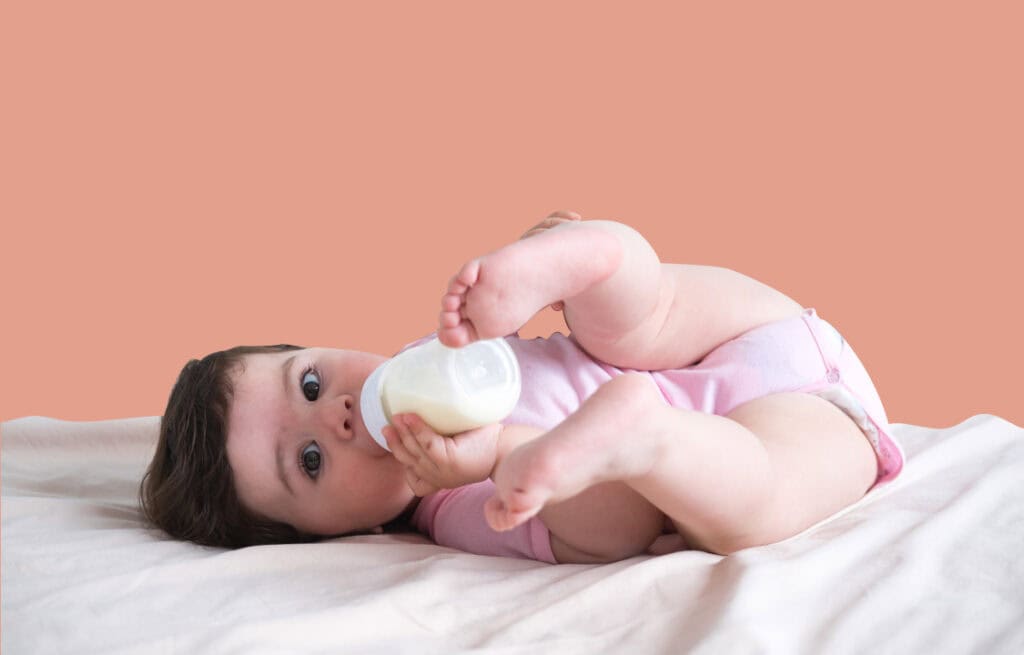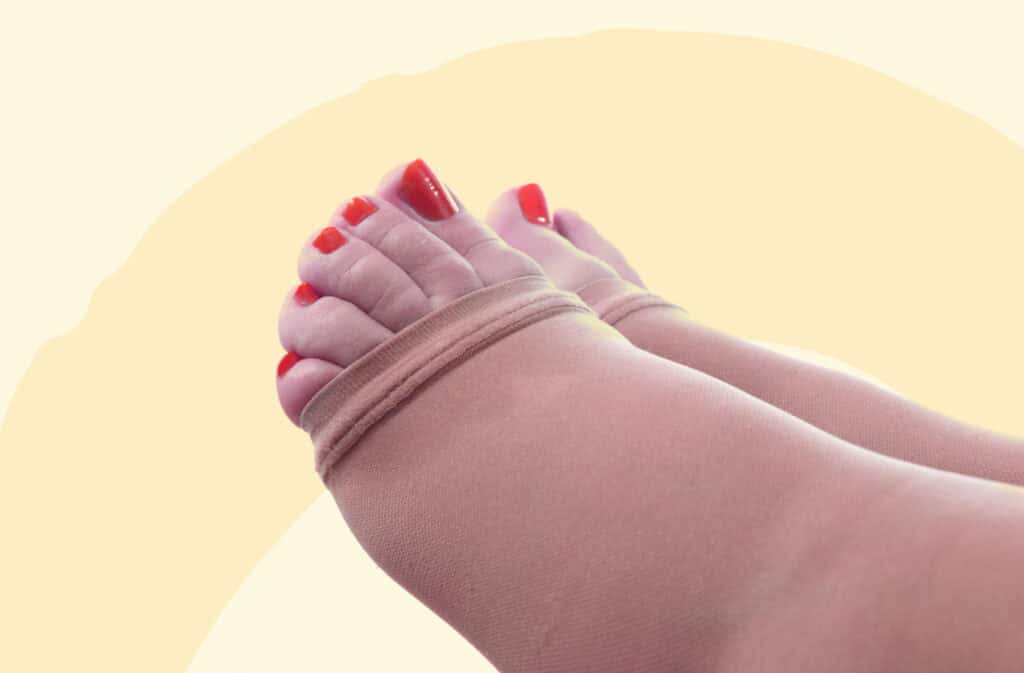Femia > Health Library > Your cycle > Health > How to shrink fibroids naturally and effectively: Diet, lifestyle, and treatment options
How to shrink fibroids naturally and effectively: Diet, lifestyle, and treatment options

- Updated Feb 11, 2025
- Published
CRAFTED BY HUMAN
Crafted by human At Femia, we provide accurate and up-to-date information at every stage of your journey, from trying to conceive, pregnancy and postnatal support. All content is created by a real person based on in-depth research and own professional experience. Femia ensures that you will receive expert advice, strict accuracy and a personalized approach from our authors/medical experts. Learn more about our editorial policy.
FACT CHECKED
Fact checked At Femia Health, we maintain the highest standards of editorial excellence in delivering content focused on helping you conceive, guiding you through pregnancy, and supporting you postpartum. Explore our content review principles to learn how we ensure the accuracy and quality of our health and lifestyle tips for every stage of your journey.

Created with Hector Chapa, MD, FACOG, Clinical associate professor, Obstetrics and Gynecology Texas A&M University, College of Medicine in Bryan-College Station, USA
Fibroids are non-cancerous growths that develop in or around the uterus. Small uterine fibroids can be treated with exercise, dietary changes, vitamin D, and omega-3 supplements, but multiple or large fibroids may need a combination of lifestyle changes, medications and surgical removal.
It is important to have realistic expectations regarding diet and fibroids. While diet alone will not shrink uterine fibroids, it can help manage symptoms and complications. A well-balanced diet can help regulate hormone levels and reduce inflammation. This may slow the growth of fibroids but will not reduce their size.
Cardiovascular exercises, like walking, yoga, and swimming, can also help balance hormones and may alleviate uterine fibroids. It is crucial to consult your healthcare provider to determine the most effective treatment based on your fibroid type, size, and number.
Fibroids, also known as uterine fibroids or uterine leiomyomas, are non-cancerous growths that develop in or around the uterus. Small fibroids don’t show symptoms and commonly go away on their own with natural remedies and lifestyle changes.
However, larger fibroids can cause symptoms like excessive pain during periods, frequent urination, painful intercourse, and others. They may need medical treatments or surgical removal. Let’s discuss how to shrink fibroids naturally with diet and lifestyle changes and when to consult a doctor.
Femia helps you understand your symptoms and when to take action
What are fibroids and why do they grow?
Uterine fibroids are benign growths of the uterus that vary in size and are made of muscle and fibrous tissue. The exact cause of fibroids is unknown, but they may develop because of genetic factors, poor diet, or high levels of hormones, like estrogen and progesterone.
Not all fibroids require treatment, but shrinking them can help relieve symptoms. Various home remedies and lifestyle changes, along with diet and exercise can help shrink fibroids naturally, but larger fibroids may require surgical removal.
👉Find out more: PCOS vs endometriosis: Symptoms, differences, and how they affect your health
How to shrink fibroids naturally
Shrinking fibroids naturally requires a combination of healthy diet and lifestyle changes, including:
1. Dietary changes
The National Library of Medicine suggests that a poor diet—including a high intake of sugary beverages, processed and refined foods, unhealthy fats—and low consumption of fiber-rich foods, vegetables, and fruits, has been associated with an increased risk of uterine fibroids. A poor diet can contribute to hormonal imbalances, oxidative stress, and inflammation, leading to the development and progression of fibroids. So, how can diet affect fibroid symptoms and size?
Shrinking fibroids naturally requires limiting unhealthy foods and increasing the intake of foods that are rich in vitamins, antioxidants, and minerals. For example: leafy greens, carrots, fruits, bell peppers, sweet potatoes, berries, fish, poultry products, and decaffeinated green tea. They help fight inflammation and oxidative stress and helps limit growth of existing fibroids.
2. Exercise
Regular, moderate-intensity cardiovascular exercises, like walking, swimming, or jogging, can help balance overall hormones and alleviate uterine fibroids.
3. Stress management
Chronic stress can increase the release of cortisol and affect hormonal balance, which can stimulate the growth of fibroids.
Managing stress with stress reduction techniques, like deep breathing, meditation, yoga, and massage, can help balance hormones and influence fibroid growth.
7 foods for shrinking fibroids
The top 7 foods for shrinking fibroids include:
| Foods to shrink fibroids | Uses |
|---|---|
| 1. Leafy greens:
• Spinach • Kale • Lettuce • Broccoli | Fibrous, antioxidant, anti-inflammatory, and a good source of vitamins and minerals. |
| 2. Citrus fruits:
• Grapefruit • Orange • Lemon | Antioxidants support the immune system and help regulate estrogen levels. |
| 3. Omega-3 Fatty Acids:
• Fatty fish, like mackerel, salmon, tuna, and sardines • Eggs • Chicken thigh meat • Kidney beans • Walnut • Flaxseed | Regulate hormones, reduce inflammation, and improve uterine health. |
| 4. Whole Grains:
• Quinoa • Brown rice • Legumes • Oatmeal • Barley • Whole wheat bread | High in fiber, possesses anti-inflammatory and antioxidant properties, regulates estrogen levels, and supports the growth of healthy gut bacteria. |
| 5. Green tea | Contains epigallocatechin gallate (EGCG), which is a strong antioxidant, has anti-inflammatory properties and regulates estrogen levels, which can reduce fibroids and alleviate symptoms, like cramping and pelvic pain. |
| 6. Nuts and seeds | Contains selenium and zinc, which support hormone balance. |
| 7. Cruciferous vegetables:
• Broccoli • Cabbage • Cauliflower • Brussels sprouts | Regulate hormones and reduce oxidative stress and inflammation. |
Vitamins to shrink fibroids
Some essential vitamins to shrink fibroids include:
- Vitamin D: Vitamin D is effective in inhibiting fibroid growth. According to the studies published in the National Library of Medicine, vitamin D3 helps inhibit the proliferation of human uterine fibroid cells. Another study on 60 participants found that oral consumption of 50,000 IU of vitamin D for 12 weeks may help inhibit the growth of uterine fibroids.
- Vitamin C: Vitamin C possesses antioxidant properties and is involved in immune system functioning, tissue repair, wound healing, and collagen synthesis, which may help alleviate uterine fibroids.
- Omega-3 supplements: Omega-3 supplements, particularly omega-3 fish oil, boosts anti-inflammatory properties, which improve the functioning of reproductive organs and support fertility by balancing hormones, helping to control fibroids.
Is it possible to shrink fibroids fast at home?
A healthcare provider can guide you on how to reduce fibroids fast at home. Shrinking fibroids with natural methods is effective but will take time. Hence, it is necessary to utilize home remedies and consult your healthcare provider for the most effective medical treatment based on your condition.
Femia helps you understand your symptoms and when to take action
Can drinking hot water shrink fibroids?
No, drinking hot water will not shrink fibroids, but it may help ease cramps, relax muscles, and aid in detoxification. There is a common myth that drinking hot water can shrink fibroids, which is not true. Home remedies may not work as standalone treatments to shrink fibroids, so it is crucial to go for evidence-based methods for treating your fibroids.
How to reduce fibroid bleeding at home
The following remedies can help stop fibroid bleeding at home:
- Applying local heat, taking warm baths, and utilizing massage therapy 2–3 times a day can help alleviate fibroid bleeding.
- For pain control, you can use non-steroidal anti-inflammatory medications, like mefenamic acid or ibuprofen.
- Herbal supplements, like chasteberry, or herbal teas, like raspberry leaf, are known to help with heavy bleeding and manage symptoms in women with fibroids.
- Consuming iron-rich foods, like poultry, fish, legumes, and lean meat can help treat anemia caused by heavy menstrual bleeding from fibroids.
Medical options for shrinking fibroids
So, how to shrink fibroids with medical treatments? The medical options for shrinking or treating fibroids include medications, surgery, and other non-invasive procedures.
1. Medications
Medications don’t directly shrink fibroids, but they help treat symptoms, like heavy menstrual bleeding, and block estrogen and progesterone hormones, which may be causing fibroid growth.
Medications that are given for uterine fibroids include:
- Gonadotropin-releasing hormone (GnRH) agonists
- Tranexamic acid
- Progestin-releasing intrauterine device (IUD)
- Gonadotropin-releasing hormone (GnRH) antagonists
👉Find out more: Low testosterone in women: Symptoms, causes, and how to treat it
2. Surgery
Surgical removal of fibroids, or myomectomy, is typically recommended if you have more than one or large fibroids. It is done by making an incision in your abdomen.
Hysterectomy is another surgical procedure to eliminate fibroids, but it removes your entire uterus, ending your childbearing ability.
3. Non-invasive procedures
Non-invasive or minimally invasive procedures are done to shrink or eliminate small to medium-sized fibroids. They include:
- Embolization: In this procedure, small particles are injected into the arteries that supply blood to the uterus and fibroids, causing the fibroids to shrink and die.
- Radiofrequency ablation: This is a minimally-invasive procedure that uses heat to destroy the fibroids by making small cuts in the abdomen.
When to see a doctor
It is recommended to consult a doctor for your uterine fibroids if you experience severe symptoms, like intense pain that doesn’t go away with medication, heavy bleeding, difficulty urinating, painful sex, fertility problems, prolonged menstruation, or bleeding between periods.
Small fibroids without severe symptoms may not need treatment, but you must schedule periodic checkups with your doctor to monitor fibroid size.
Questions from the Femia community
Can fibroids shrink on their own without treatment?
Yes, fibroids can shrink on their own without treatments, but it depends on factors like fibroid size and location, age, overall health condition, and individual body factors. Mostly, fibroids shrink on their own after menopause due to a decline in fertility hormones like estrogen. A reproductive-aged woman may need treatment to remove fibroids, as sometimes they can interfere with fertility.
Can fibroids come back after shrinking?
Yes, fibroids can come back after both surgical and non-surgical treatments, particularly if hormonal imbalances persist. Hence, it is crucial to ensure checkups and hormonal balance even after shrinking fibroids to monitor recurrence.
Can stress cause fibroids to grow?
Stress doesn't directly cause fibroids to grow, but chronic stress can contribute to hormonal imbalances, which can potentially exacerbate fibroid growth.
Is it possible to completely eliminate fibroids without surgery?
Yes, non-surgical options, like focused ultrasound treatments, are available to destroy the fibroids by using high-frequency, high-energy sound waves. However, it is crucial to consult your doctor regarding the best treatment option according to your condition and fibroid size and location. Large fibroids may need surgery and ultrasound treatments to eliminate them completely.
The bottom line
Exercise, dietary changes, and vitamin supplements can help balance hormones, which can shrink fibroids with time. However, shrinking fibroids naturally is a time-consuming process and is more effective for smaller sizes and numbers of fibroids.
Home remedies paired with medical treatments can help alleviate symptoms, shrink fibroids, and prevent recurrence. Moreover, it is recommended to consult your healthcare provider, especially if you experience severe symptoms, like intense pain, fertility problems, difficulty urinating, and heavy menstrual bleeding.
References
- Vafaei, Somayeh, et al. “Empowering Strategies for Lifestyle Interventions, Diet Modifications, and Environmental Practices for Uterine Fibroid Prevention; Unveiling the LIFE UP Awareness.” Nutrients, vol. 16, no. 6, Mar. 2024, p. 807. https://doi.org/10.3390/nu16060807.
- Micić, Jelena, et al. “Currently Available Treatment Modalities for Uterine Fibroids.” Medicina, vol. 60, no. 6, May 2024, p. 868. https://doi.org/10.3390/medicina60060868.
- Al-Hendy, Ayman, and Marwa Badr. “Can Vitamin D Reduce the Risk of Uterine Fibroids?” Women’s Health, vol. 10, no. 4, July 2014, pp. 353–58. https://doi.org/10.2217/whe.14.24.
- Ciebiera, Michał, et al. “Vitamins and Uterine Fibroids: Current Data on Pathophysiology and Possible Clinical Relevance.” International Journal of Molecular Sciences, vol. 21, no. 15, Aug. 2020, p. 5528. https://doi.org/10.3390/ijms21155528.
- “Uterine Fibroids.” Cleveland Clinic, 9 Sept. 2024, my.clevelandclinic.org/health/diseases/9130-uterine-fibroids#symptoms-and-causes.
- “Fibroids.” nhs.uk, 7 Mar. 2024, www.nhs.uk/conditions/fibroids.

Let’s learn what postpartum anxiety is, its causes, symptoms to watch for, and treatment options.

What is newborn milk tongue and how to tell the difference between milk tongue vs thrush? Learn all about baby milk tongue and how to get rid of white tongue on baby.

Learn what’s normal, how to reduce swelling, and when to seek urgent medical care for serious conditions like preeclampsia or blood clots.
